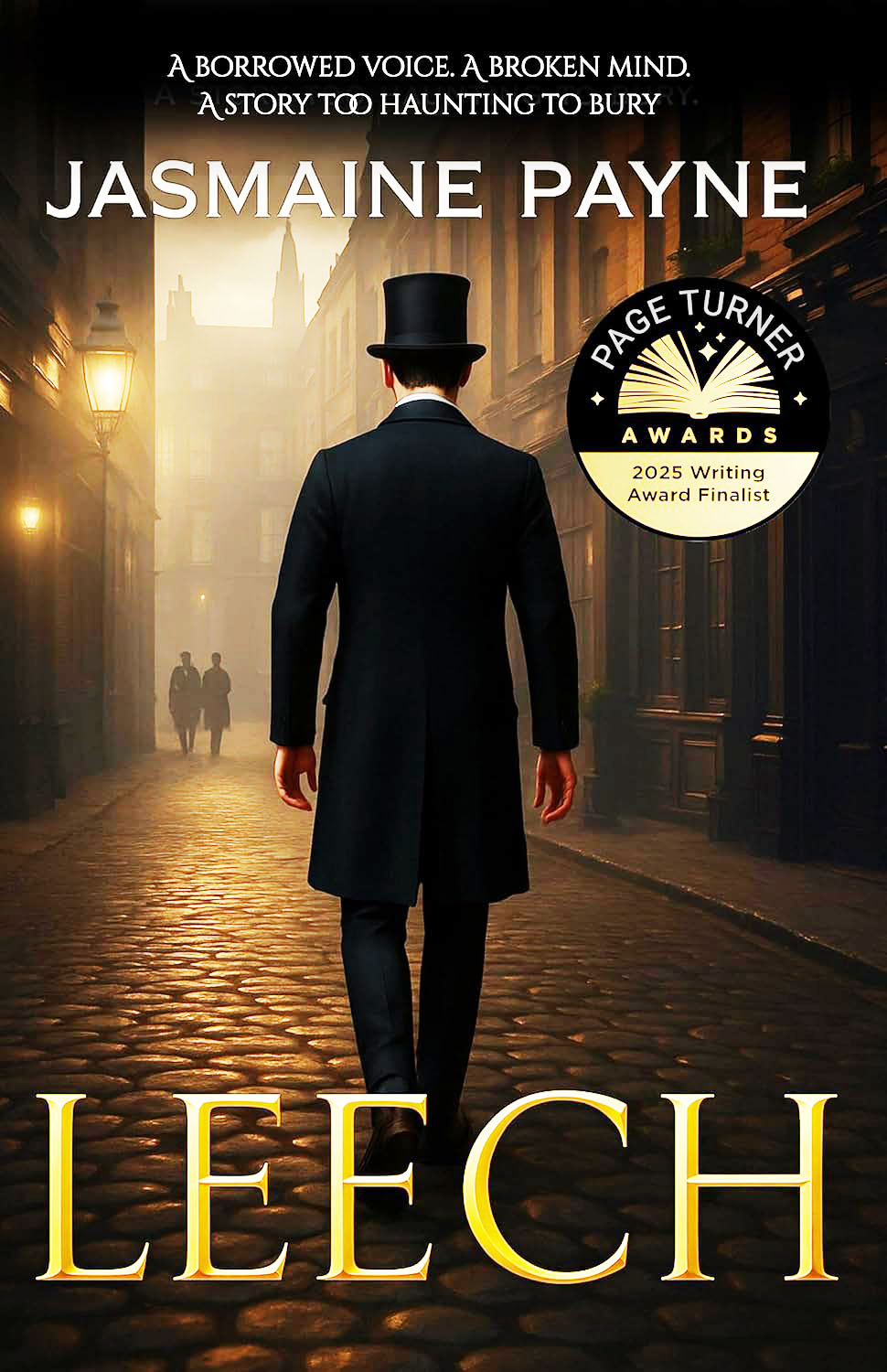By Berkley Wendell Semple,Stabroek News
Copyright stabroeknews

By Berkley Wendell Semple
Genre fiction in the West Indian novel has been growing recently, particularly among new writers. Their novels seek to be thrillers of one type or another but tend to be a cross between the popular novel and literary fiction. In Guyana, for example, Michael Jordan emerged as a prominent writer winning the 2023 Guyana Prize for Fiction for his second novel, “The Girl in the Pink Pleated Skirt”, a work of crime fiction. This followed his very sensational and controversial horror, mystery and crime thriller, “Kamarang”.
This year, Jasmaine Payne launched her novel “Leech”, which was published in the USA by JAM Services. It is a high octane thriller that may be described as a crime story, but may equally be horror fiction, fantasy, with a touch of time travel, science fiction and the psychological. Yet it tests the boundary between these and literary fiction, a different kind of West Indian novel that brings to mind the gothic as in “Wide Sargasso Sea”, but is set in present day New York and Victorian London with reference to a Guyanese environment.
Below, Berkley Wendell Semple, a Guyanese poet, novelist and critic resident in the USA reviews “Leech”. Semple is a winner of the Guyana Prize for Literature for Poetry (“The Lamplight Teller” and “Flight, and Other Poems”) and for First Book of Fiction (“Kipling Plass”).
Jasmaine Payne is a Guyanese journalist, writer and publicist. “Leech” is her debut novel. (ALC).
[Jasmaine Payne, Leech, JAM Services, Ohio, USA, 2025, 246pp. $4,000; (Amazon, US$17.99 – paperback; US$8.99 – ebook]
West Indian novelists are not typically known for genre fiction. It’s hard to find a ready example when you reach out for one. A few names do come to mind, of course. Michael Jordan’s “Kamarang” represents the horror genre, aligning more with Stephen King than Edgar Mittelholzer. There are also the mystery novels of Jacob Ross and Leonardo Padura. But these writers are exceptions, not the rule. Their work stands apart from the literary tradition of the region. Most West Indian novels fall decidedly into the category of literary fiction.
Jasmaine Payne’s debut novel, “Leech”, defies easy categorization. It is a brilliant pastiche of multiple genres. At its core, “Leech” is a gothic novel in the classical vein, echoing the dark romanticism and gothic authenticity of “Rebecca”, “Jane Eyre”, and “Wide Sargasso Sea”. It also flirts with horror, calling to mind Mittelholzer’s “Eltonbrody” and the macabre tales of Edgar Allan Poe — particularly “The Fall of the House of Usher” and “The Cask of Amontillado”. Yet “Leech” also borrows from the medical thriller genre, in the tradition of Mary Shelley’s “Frankenstein” and Stevenson’s Dr Jekyll and Mr Hyde, sharing their theme of the scientist as a human monster.
To complicate matters further, “Leech” is a time-travel novel in the spirit of Stephen King’s “11/22/63”, and it culminates in a kind of psychological horror thriller. This fusion of genres makes Payne’s novel unique within recent Caribbean fiction. Reference to the West Indies is only peripheral, although it is significant to note that both parents of our heroine are from Guyana, and “Leech’s” love interest flees his scalpel for the wild coast. It is a skillfully written tour de force with a tightly integrated, engaging structure. But I get ahead of myself — first, a précis of this strange and suspenseful tale.
The novel employs a nimble and complex structure, which is a logical necessity given its shifting settings: it unfolds across various time periods between 1855 Victorian England and present-day New York City. While it makes peripheral reference to the Caribbean, this is not a Caribbean novel in the traditional sense.
The “mad scientist” at the centre of the narrative is one John Leech, son of a renowned English physician in 1895. Although his father wants him to pursue studies as a lawyer, John is determined to follow in his footsteps. He studies medical texts in secret and begins conducting gruesome experiments — first on animals, then on more sentient beings, some procured through grave robbers, others hunted down himself. He is a proper villain; think Jack the Ripper with a scalpel and his victim etherized upon a surgical table, and you will get the kind of murderer Leech is; now think of a genius-level sociopath without a moral compass, and you get a mesmerizing character reminiscent of Hannibal Lecter. Leech is a wonderful creation, a dark traveller who scares you from the pages.
John seeks recognition from the medical establishment, sending them the findings from his unsanctioned experiments. But the medical elite ridicule and ostracize him, branding him with the cruel moniker “Halfpenny” — suggesting he’s not quite all there, not whole, but merely half. Enraged, John murders his chief detractors, which turns the community against him. Pursued and cornered, he burns down his own mansion in an apparent suicide. Yet John does not die. He wakes up in present-day New York — undead, aware, and newly endowed with superhuman abilities, all of which serve his enduring ambition for fame.
Fame is a central motif of the novel. It’s the overriding obsession of the three main characters. For John Leech, fame is everything — there is no moral boundary he won’t cross to achieve it. This is also true of Arianne, the novel’s heroine. She is ambition-incarnate, a writer determined not just to write, but to become famous and successful. She achieves this when she encounters the charismatic and terrifying Leech, but the price is high. He frightens her into writing his own horrific story — an account filled with blood, violence, and madness.
One of Leech’s new powers is the ability to possess the minds and bodies of others, allowing them to experience his crimes from his perspective. It’s a chilling conceit, tapping into our primal fears of mental invasion and loss of self. Leech invades Arianne’s mind. She cannot cope. Eventually, she ends up in a tranquil psychiatric institution named Homer, where we meet the novel’s third obsessive figure: Dr Oscar Pressum, a nearly divorced psychologist who begins treating Arianne.
The story Arianne tells him — about Leech and the bestselling novel she wrote about his murderous rampage — forms the narrative core of “Leech”. The novel alternates between the perspectives of these characters and excerpts from Arianne’s fictionalized account of Leech’s biography. In doing so, Payne taps into the current trend of metafiction, which is handled deftly and without overindulgence.
The novel balances its multiple perspectives with impressive control. The transitions are seamless from one character to the next. More impressive still, especially for a debut novel, is Payne’s command of suspense and pacing. The tension mounts with each chapter, drawing the reader inexorably forward. Like any successful thriller, “Leech” is hard to put down — it keeps the reader riveted.
Another standout feature is Payne’s rendering of Victorian England. The setting feels authentically Dickensian — the sounds, the smells, the social hierarchies, and especially the class-specific dialogue. Payne demonstrates a keen ear for period speech, anchoring the historical scenes in a vivid, immersive world. The descriptions are sharp and powerfully rendered. This is literary genre fiction, replete with the tropes of literary fiction such as a penchant for its complex exploration of salient social issues and its versatile narrative structure.
John Leech and Dr Pressum are remarkably well-developed characters, with rich backstories that explain and enhance their personalities. Arianne, by contrast, feels slightly less vivid. Aside from her ambition, we learn little about her inner life. Her parents appear briefly, but do little to illuminate her character. Compared to Leech and Dr Pressum, she appears less rich, but we immediately sympathize with her. This is a minor quibble in a novel loaded with good, entertaining stuff.
“Leech” is a gripping novel, full of rich characters and thrilling incidents. It is an impressive debut and a welcome addition to the sparse corpus of West Indian genre fiction. I look forward to reading more from this gifted and fearless writer.



